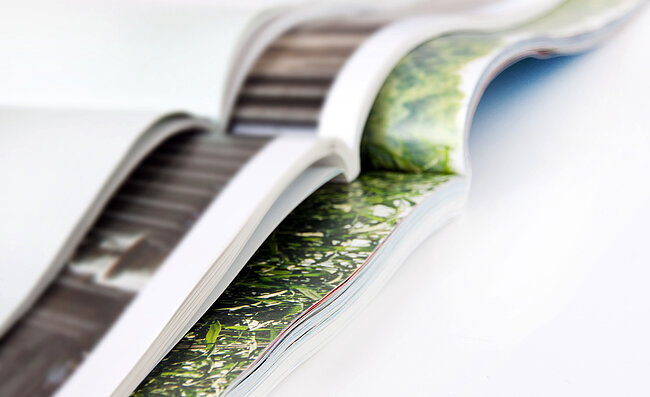We spoke to the managing partners of Storopack, Verena and Hermann Reichenecker, about sustainability and what Storopack is doing to conserve resources and energy.
Plastic is currently a huge topic of discussion, including plastic pollution in the ocean.
Hermann Reichenecker: Pollution of the seas is a global problem and we need to work together to solve it. Plastic shouldn’t end up in the ocean. It should be recycled.
What can we do to prevent that?
Verena Reichenecker: According to a variety of studies, around 80 percent of this waste comes from Asian countries, approximately one percent from Europe and some 0.02 percent from Germany. Unfortunately, the primary countries responsible rarely have any functioning disposal and recycling systems, meaning we need to help these countries develop a sensible system for recycling these valuable materials.
The EU wants to ban single-use plastic products such as straws.
Hermann Reichenecker: The actual problem cannot be solved in this way. In my opinion, a more sustainable solution would be for the government to actively promote investment in the infrastructures of the countries in question, to ensure that recycling works as well as it does in most industrialized countries. And then you can talk about how plastic is justifiable in many cases. Plastic is often a must. Also, alternatives are usually associated with a significant increase in the use of resources.
Verena Reichenecker: People have tried to ship products without protective packaging time and again, with the result that too many items reach the recipient damaged. At the end of the day, that’s worse for the environment than using protective packaging. If a product arrives broken, it has to be returned to the retailer and from there sent back to the manufacturer, where it’s repaired or even reproduced and then sent back to the buyer. As you can imagine, all that consumes a lot more raw materials and energy than manufacturing and recycling protective packaging, which effectively protects the product. It’s also important for consumers to know that.
Hermann Reichenecker: Plastic generally requires clarification, too. Few people are probably aware that the production process for plastic film, for example, requires relatively little water and energy. And that EPS products are highly recyclable and, if that’s no longer possible, can be incinerated to generate energy without any residue. They’re a very welcome source of energy at waste-to-energy plants because they have a high calorific value.
Verena Reichenecker: It’s information like this that has prompted us to introduce a new “Facts about Plastics” section for future issues of [direct]. In a second section entitled “Sustainable Storopack,” we’ll be reporting on sustainability measures taken by Storopack on a regular Basis.
So what is Storopack doing to increase sustainability?
Hermann Reichenecker: Manufacturers such as Storopack are too small and thus not in a position to directly tackle the problem of insufficient infrastructures for waste disposal in developing countries. But Storopack does support initiatives such as Ocean Cleanup, which develops and implements new solutions for removing waste from the oceans. We continuously optimize our production to ensure that no plastic ends up in the environment as well as develop eco-friendlier, more sustainable products. For instance, our AIRplus® Void film is produced from around 50 percent recycled materials. We already generate approximately 25 percent of our sales with products made from recycled or renewable raw materials. This is a very high number in our industry.
Verena Reichenecker: We’ve also taken measures to conserve energy and reduce CO2 emissions, including the energy efficiency upgrade of our Vechta and Krumbach Molding locations. The issue of sustainability is very important to us.
MARINE LITTER
= waste floating in the ocean, primarily plastic pollution. It is estimated that between 4.8 and 12.7 million metric tons of plastic find their way into the world’s oceans every year. Waves and sunlight continue breaking the plastic down into microplastic. Seabirds and fish can consume the plastic along with their food or get caught in larger pieces such as bags. In turn, humans ingest the microplastic when they consume seafood and fish.
SINGLE-USE PLASTICS
Plastic products that are usually used just once and then disposed of, including straws, plastic silverware, cups and plates, cotton swabs, and plastic drink bottles. Plastic bags, too, are often used just once and then thrown away.
BAN OF DISPOSABLE
The European Commission wants to ban single-use plastics such as straws, cotton swabs, balloon sticks, and plastic plates as well as increase plastic recycling, which should reduce plastic pollution in the ocean. The Commission has introduced a draft for an EU Directive, but the recommendation first has to be discussed by the EU countries and then translated into laws. These measures should target products like these, to which there are highly available and affordable alternatives.
